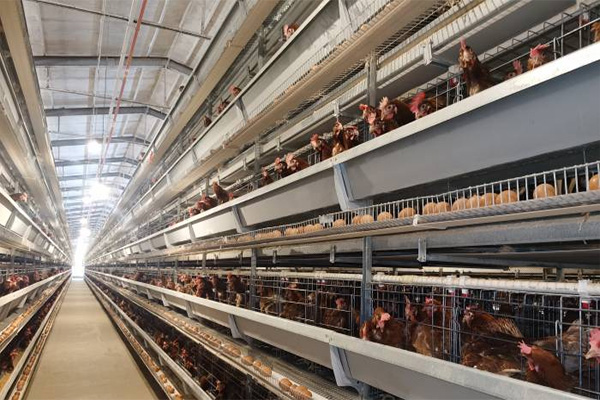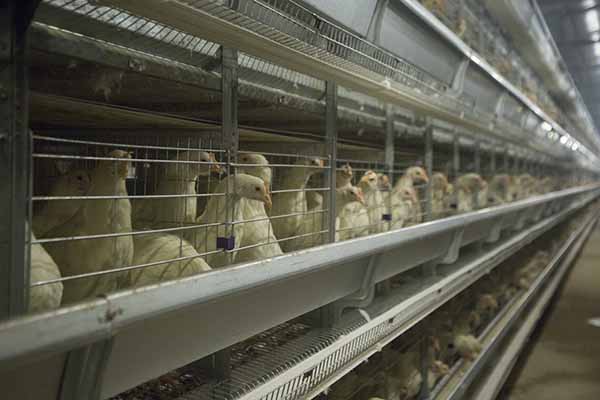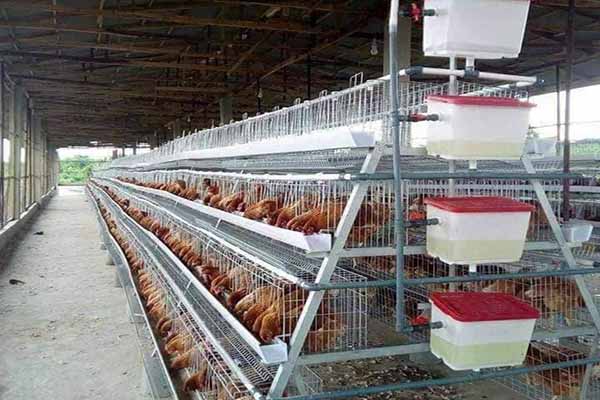Unlocking the Potential of Local Chicken Farming in Kenya
Time : 2025-05-13
When it comes to agriculture, Kenya has been making significant strides in various sectors. One such sector that has been gaining momentum is local chicken farming. This article delves into the ins and outs of local chicken farming in Kenya, providing you with valuable insights and practical tips to help you get started or improve your existing chicken farming venture.

The Growing Industry
Kenya’s local chicken farming industry has been on a steady rise, thanks to increased demand for poultry products and the government’s support. According to the Kenya Poultry Society, the country’s poultry production has been growing at an average of 6% per year, with the potential to reach 1.5 million tons by 2025.
Market Demand
The demand for chicken meat and eggs in Kenya is skyrocketing. Urbanization, changing dietary preferences, and the growing middle class have all contributed to this trend. As a result, local chicken farmers have a vast market to tap into.
Choosing the Right Breed
The first step in successful local chicken farming is selecting the right breed. In Kenya, there are several breeds that are well-suited to the local environment and consumer preferences. Here are a few popular choices:
- Langshan: Known for their hardiness and ability to withstand harsh weather conditions, Langshan chickens are a great choice for Kenyan farmers.
- Arab and Brahmin: These breeds are popular for their egg-laying capabilities and adaptability to local conditions.
- Hybrid breeds: Crossbreeding local and exotic breeds can result in chickens that are more productive and resilient to diseases.
Feeding and Nutrition
Proper nutrition is crucial for healthy chickens and high-quality produce. Here are some tips to ensure your chickens are well-fed:
- Quality Feed: Use high-quality chicken feed that is rich in protein, vitamins, and minerals. Avoid low-quality feed that can lead to health issues and poor productivity.
- Supplements: Depending on the breed and age of your chickens, you may need to supplement their diet with additional nutrients, such as vitamins A, D, and E, and calcium.
- Water: Fresh, clean water should be available to your chickens at all times. Water is essential for digestion and overall health.
Health and Disease Prevention
Keeping your chickens healthy is key to a successful farming operation. Here are some tips to prevent diseases and maintain the well-being of your flock:
- Regular Vaccinations: Vaccinate your chickens against common diseases such as Newcastle Disease, Fowl Pox, and Infectious Bronchitis.
- Sanitation: Keep your chicken coop clean and well-ventilated. Regularly remove droppings and replace bedding to prevent the spread of diseases.
- Monitor Health: Regularly check your chickens for signs of illness, such as changes in appetite, weight loss, or respiratory problems. Seek veterinary care promptly if you notice any health issues.
Marketing Your Products
Once you have a healthy and productive flock, i t’s time to think about marketing your products. Here are some strategies to help you reach your target market:
t’s time to think about marketing your products. Here are some strategies to help you reach your target market:
- Direct Sales: Sell your chicken meat and eggs directly to customers at your farm gate or through community markets.
- Wholesale: Partner with local grocery stores, restaurants, and hotels to supply your products in bulk.
- Online Sales: Set up an online store or use social media platforms to market your products to a wider audience.
Challenges and Solutions
Like any farming venture, local chicken  farming in Kenya comes with its own set of challenges. Here are some common challenges and potential solutions:
farming in Kenya comes with its own set of challenges. Here are some common challenges and potential solutions:
- Access to Financing: Lack of access to financing can be a major barrier for farmers. Look into government loans, grants, or microfinance options to secure the capital you need.
- Market Access: Limited market access can hinder your sales. Build relationships with local businesses and explore export opportunities to expand your market reach.
- Climate Change: Climate change can impact your farming operations. Implement sustainable farming practices, such as crop rotation and water conservation, to mitigate the effects of climate change.
Conclusion
Local chicken farming in Kenya is a promising industry with immense potential. By choosing the right breed, providing proper nutrition, and implementing effective marketing strategies, you can build a successful farming operation. Remember to stay informed about the latest trends and innovations in the industry to stay ahead of the competition.
For more information on local chicken farming in Kenya, be sure to check out these resources:











